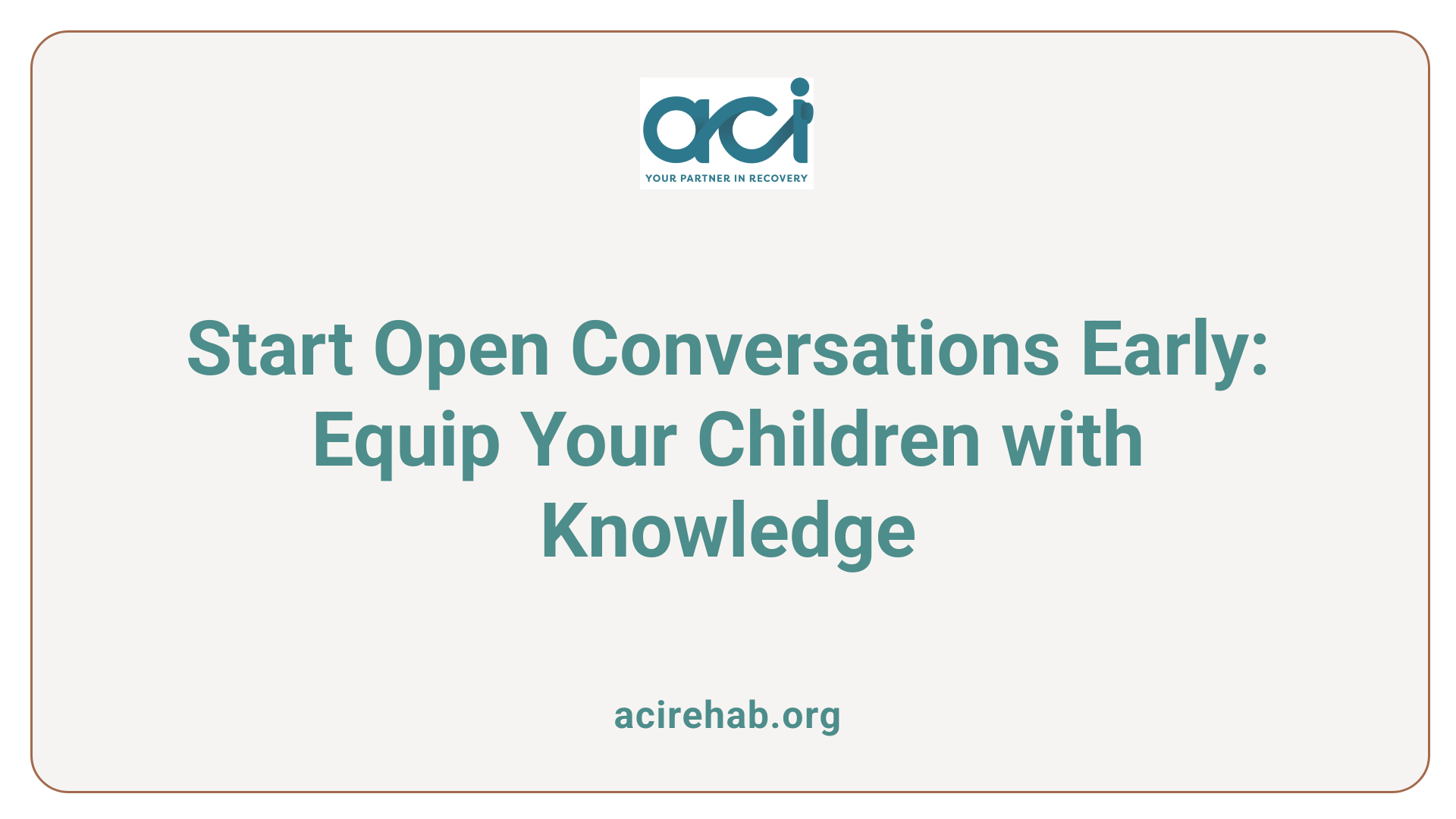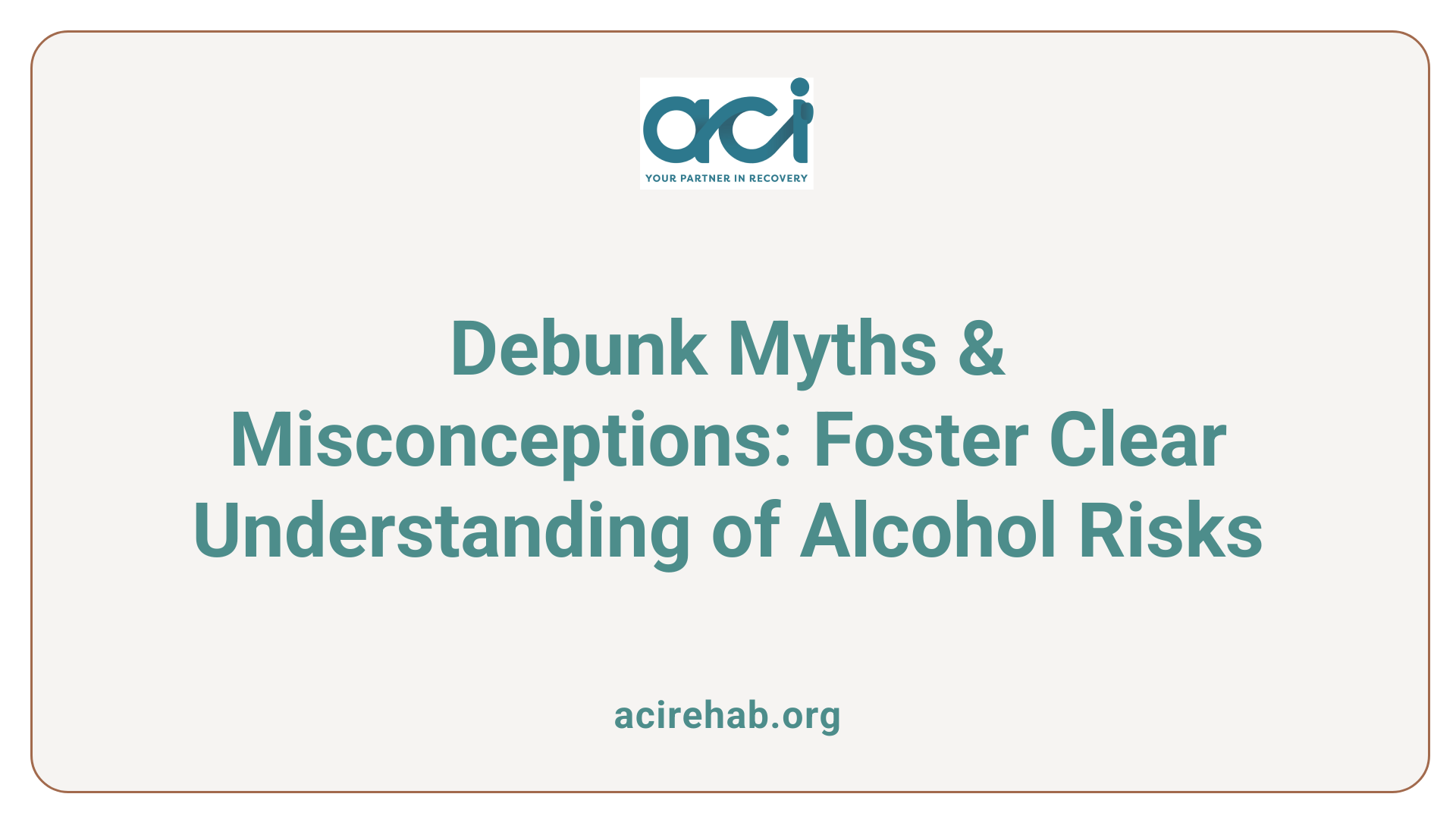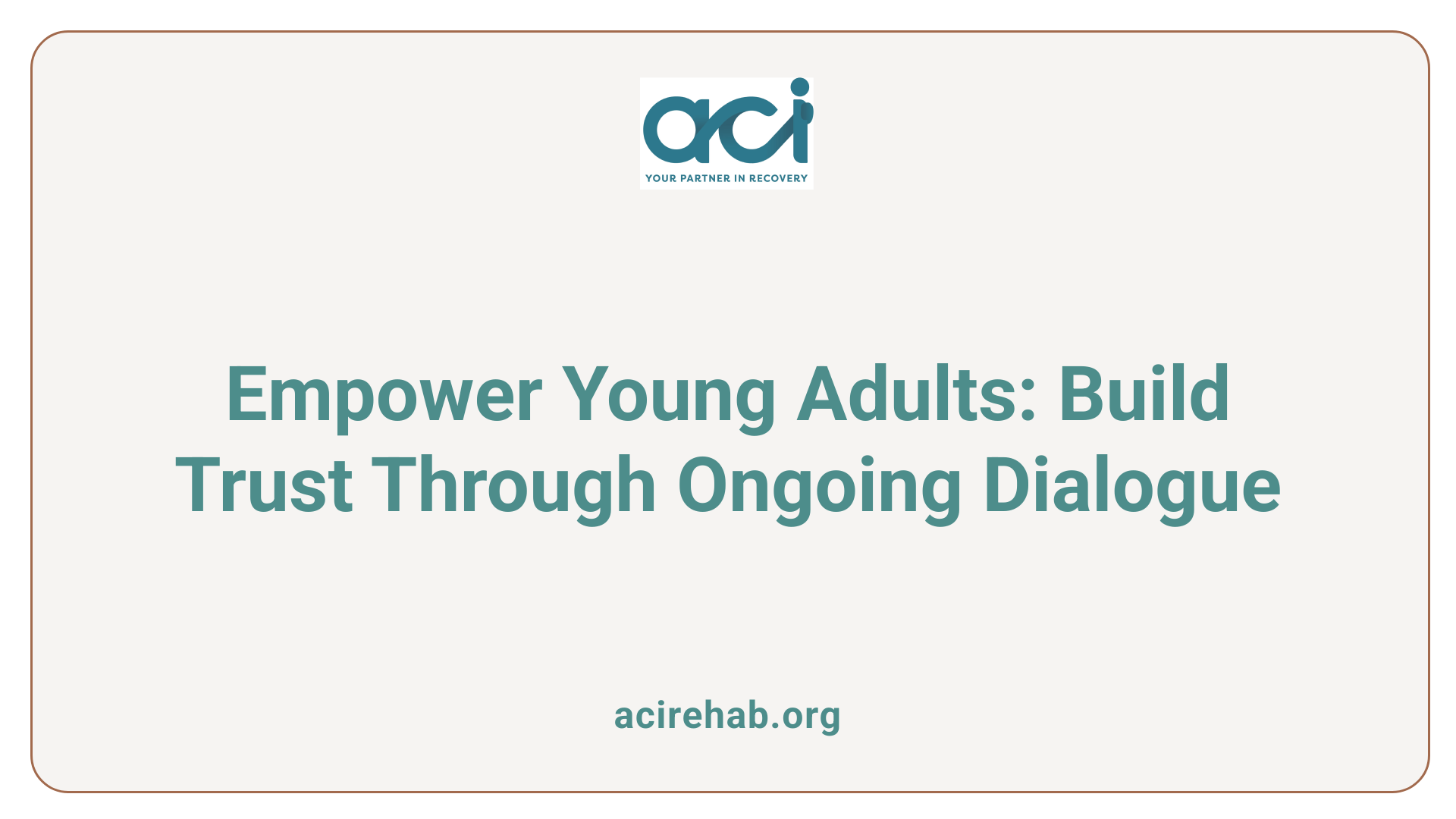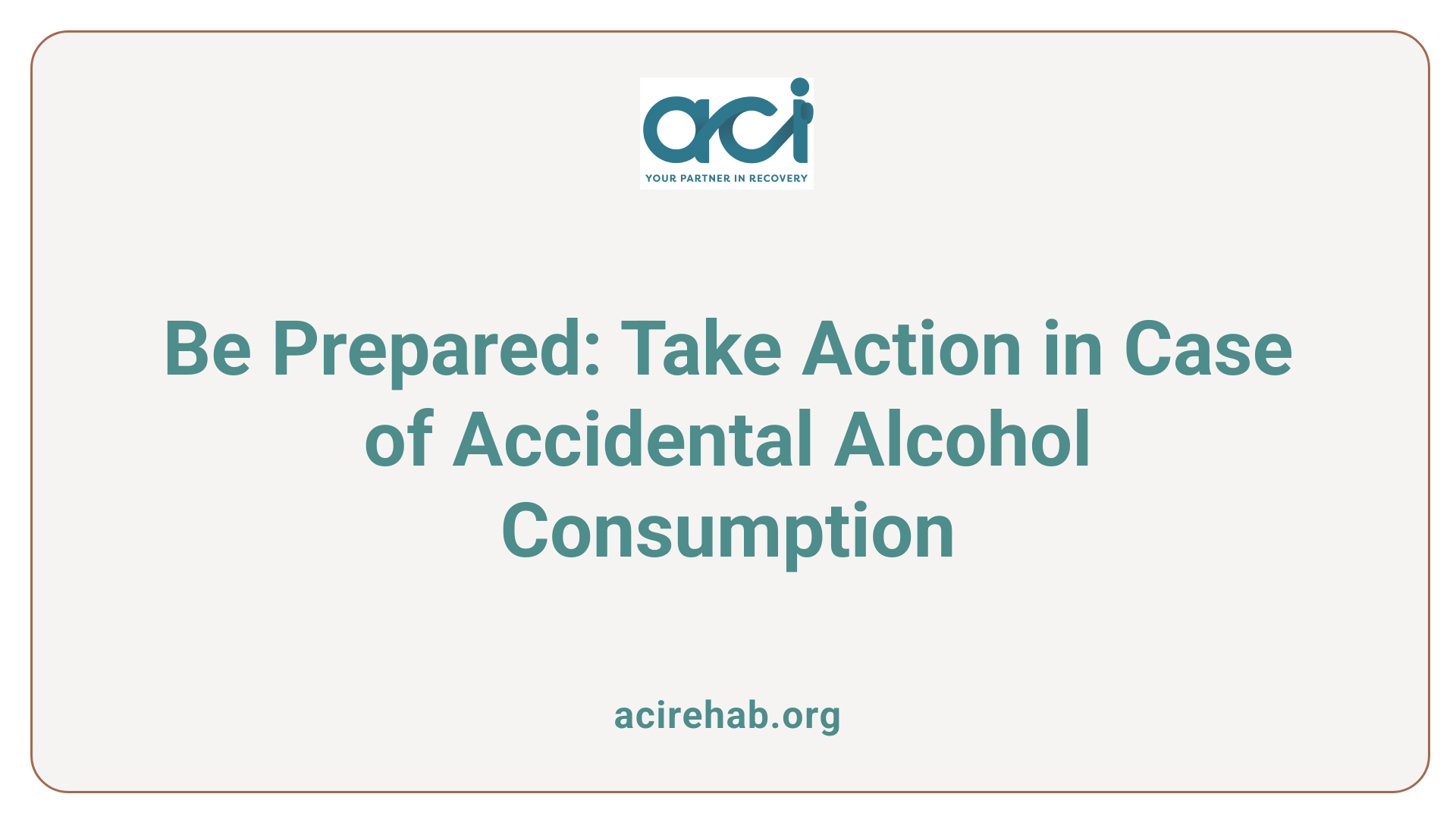The Crucial Role of Parental Guidance in Alcohol Awareness
Parents are a pivotal influence on their children’s decisions regarding alcohol use. Understanding how to effectively communicate with children about alcohol can have far-reaching consequences in preventing substance misuse and fostering healthy attitudes. This article explores the significance of parental dialogues on alcohol and offers strategies for impactful conversations, tailored to children’s developmental stages.
Early Conversations: Setting the Stage for Awareness

Importance of discussing alcohol before exposure
Initiating discussions about alcohol and drugs before a child is exposed to them can significantly set the tone for their future choices. Research shows that children as young as nine begin to form positive attitudes toward alcohol, and by age 12, many start experimenting with substances. Having discussions early fosters respect for parental rules and advice. It becomes imperative for parents to communicate the associated risks and health impacts of alcohol use.
Impact of early communication on respect for parental rules
The conversations parents have with their children about alcohol can influence future behavior. According to studies, children who engage in open dialogues with their parents are more likely to abide by household rules surrounding substance use. Parents should proactively establish a foundation of trust and transparency, ensuring that their children feel safe to share their thoughts and concerns.
How should parents talk to their children about alcohol?
Parents should approach conversations about alcohol with their children by starting early and maintaining an ongoing dialogue. Begin by asking what they’ve heard about alcohol in a nonjudgmental manner, allowing for honest communication. Provide factual information about the risks of alcohol and other drugs, emphasizing the dangers of underage drinking and substance misuse. It’s important for parents to model healthy attitudes towards alcohol, as their behavior can significantly influence their children’s choices. Creating a supportive family environment where feelings can be expressed freely encourages children to discuss their concerns and seek guidance when needed.
| Topic | Key Points | Implications |
|---|---|---|
| Early Conversations | Initiate talks before exposure | Build trust and understanding |
| Role of Parents | Model responsible behavior | Influence child choices positively |
| Respect for Rules | Frequent communication fosters respect | Encourages adherence to household norms |
Age-Appropriate Discussions on Alcohol
Explaining alcohol to young children
To effectively explain alcohol to a child, it’s crucial to start early. Research indicates that children as young as nine may begin hearing about alcohol from their peers. Parents should frame alcohol as a drug that can pose significant risks to developing bodies and brains.
When discussing the topic:
- Use simple language: Describe alcohol in a way that is easily understood.
- Discuss potential dangers: Explain aspects like addiction, impaired thinking, and coordination issues.
- Create a comfortable environment: Encourage children to ask questions, reinforcing a safe space for dialogue.
Additionally, shouting clear expectations around alcohol use is vital. A zero-tolerance policy for underage drinking helps children understand the importance of saying "no" in social situations.
Developmental appropriateness
As children grow, the conversations about alcohol should evolve to match their developmental stage.
- For ages 4 to 7: Keep explanations basic, focusing on effects like bad breath and impaired judgment.
- For ages 8 to 11: Discuss both short-term effects (like distorted vision) and long-term health issues (liver damage).
During the teenage years, open communication becomes even more critical. Adolescents need to feel comfortable discussing their experiences with alcohol, trusting their parents to provide guidance.
Having frequent, informal conversations helps dispel myths around drinking and fosters informed decision-making as they encounter alcohol in their lives.
Raising Awareness: Tackling Alcohol Misconceptions and Dependencies

Why is it important to raise awareness about alcohol?
Raising awareness about alcohol is critical as many individuals depend on it to cope with stress. Unfortunately, this dependency often worsens their mental health and overall well-being. By promoting mindfulness about drinking habits, individuals can better assess whether their alcohol consumption is negatively impacting their personal or professional lives.
Awareness also helps in identifying the risks of heavy drinking, including the potential development of alcohol use disorders, which can lead to serious medical and legal issues. Numerous resources, such as Employee Assistance Programs (EAP) and national helplines, provide support for those struggling with substance use.
Addressing Alcohol Misconceptions
Many misconceptions exist around alcohol consumption, often fueled by media portrayals and peer influences. For instance, the belief that drinking allows for relaxation or stress relief can be misleading. In reality, excessive alcohol consumption can intensify anxiety and lead to adverse emotional states.
Parents play a key role in debunking these myths and fostering a clearer understanding of alcohol’s effects. Open communication and education can dispel misconceptions and promote healthier choices among children and teens. Encouraging discussions about alcohol and its realities helps cultivate an informed mindset, enabling young individuals to navigate their social environments with robust refusal skills.
In conclusion, increasing awareness about alcohol is essential for fostering supportive family dynamics and responsible decision-making among youth.
Equipping Young Adults with Knowledge and Skills

How to discuss alcohol responsibly with young adults?
To facilitate effective conversations about alcohol with young adults, parents should aim for multiple short discussions instead of one long talk. This approach helps in building trust and creating an open environment. Parents need to clearly express their disapproval of underage drinking while discussing the various potential consequences of substance misuse. It is essential to listen actively to the concerns of young adults, allowing them to voice their thoughts without fear of judgment.
Strategies for discussing alcohol with adolescents
Here are some strategies to help parents navigate discussions about alcohol:
- Set Clear Expectations: Define family rules regarding alcohol and explain why they matter.
- Use Real-life Examples: Discuss how alcohol is depicted in media and real life, which can lead to misunderstandings about its effects.
- Encourage Questions: Allow young adults to express their opinions and ask questions to foster a two-way dialogue.
- Offer Support: Reassure them about seeking help if they ever feel pressured to drink.
Addressing peer pressure and media influence
Parents should delve into discussing peer pressure and media portrayals of drinking. Emphasizing the importance of making informed choices can empower young adults. By addressing these topics, parents enhance their child’s ability to resist negative influences, enabling them to navigate social situations safely and confidently. Moreover, highlighting that they can say ‘no’ to drinking fosters resilience against peer pressure. By maintaining these comprehensive conversations, parents play a critical role in shaping positive attitudes towards alcohol consumption among their young adults, preparing them for responsible decision-making.
The Health Risks of Teenage Alcohol Consumption
Why should teenagers not drink alcohol?
Teenagers should avoid alcohol consumption due to the substantial health risks involved. Drinking at a young age can severely interfere with brain development, which continues into the mid-twenties. The adolescent brain is particularly vulnerable, and alcohol can hinder critical processes like memory, learning, and impulse control.
The consequences of underage drinking extend beyond personal health. Statistics indicate that underage drinking is often linked to risky behaviors, including binge drinking and unsafe sexual practices. These behaviors can lead to serious outcomes, such as injuries, unplanned pregnancies, and legal issues.
Moreover, the dangers are not just theoretical; countless reports highlight that underage drinking results in emergency room visits and fatalities each year. The National Institute on Alcohol Abuse and Alcoholism (NIAAA) stresses that delaying alcohol use until at least the legal drinking age is vital for safeguarding the long-term cognitive and emotional health of young people.
In addition to the immediate risks, early consumption of alcohol increases the likelihood of developing alcohol dependency later in life. Thus, parents and caregivers should emphasize the importance of avoiding alcohol until adulthood, building a foundation for healthier life choices and well-being.
| Harmful Consequences | Examples | Statistics |
|---|---|---|
| Interference with brain development | Impairs memory and cognitive skills | Thousands of youth emergency visits |
| Risk of injuries | Accidents, falls, and other physical harm | High rates of alcohol-related deaths |
| Long-term dependency potential | Increased risk of developing alcohol use disorders | 1 in 4 teenagers may develop AUD |
This comprehensive prevention approach emphasizes that the conversation around underage drinking is not just about rules, but about promoting healthy choices and a safer future.
Empowering Families: Preventing Alcohol Misuse
How can parents prevent alcohol abuse among youth?
Parents play a pivotal role in preventing alcohol abuse among youth by cultivating an environment of open communication. Engaging in early discussions about the risks associated with alcohol use significantly increases the chances of children making informed decisions. Conversational strategies can include:
- Establishing Clear Expectations: Parents should communicate explicit disapproval of underage drinking and create clear guidelines about alcohol use.
- Modeling Responsible Behavior: Demonstrating responsible drinking habits, or abstaining altogether, teaches children to approach alcohol with caution.
- Active Monitoring: Keeping a close eye on children’s activities and peer groups can help parents stay informed and guide their children through social pressures.
What role does responsible behavior by parents play?
Responsible behavior by parents not only sets a standard but also builds trust. Children are influenced greatly by their parents, with studies showing that nearly 80% of youth value parental input on drinking decisions. Effective parental strategies include:
- Encouraging Participation in Healthy Activities: Involvement in community programs enhances youth skills and provides positive engagement, steering them away from substance use.
- Identifying Risk Factors: Being aware of changes in a child’s social circle or family history of alcoholism empowers parents to address potential issues before they escalate.
- Collaborating with the Community: Working with other parents and local organizations to create alcohol-free spaces reinforces healthy choices for youth.
Through these strategies, parents can reinforce positive behaviors and help minimize the risks of alcohol misuse among their children.
Navigating Accidents: What to Do When a Child Consumes Alcohol

What should parents do if a child accidentally drinks alcohol?
If a child accidentally drinks alcohol, parents should act quickly and decisively. The first step is to seek immediate medical attention by calling 911 or the local emergency number—even if the child seems fine. Symptoms of alcohol poisoning can develop rapidly. It’s also crucial to contact Poison Control at 1-800-222-1222, providing them with details about the alcoholic product, the amount ingested, and the child’s age and weight.
While waiting for professional help, parents should closely monitor the child’s condition. If they are vomiting, keep them awake and in a sitting position to prevent choking. Never attempt to induce vomiting, as this can be dangerous. It’s essential to stay by the child’s side, reassure them, and keep them calm until help arrives.
What preventive measures can parents take?
Preventing future incidents is just as critical. Here are effective strategies:
- Keep Alcohol Out of Reach: Store alcoholic beverages and products containing alcohol in secured areas that children cannot access.
- Educate About Alcohol: Have open conversations about the dangers of alcohol, explaining its effects in age-appropriate language.
- Model Responsible Behavior: Demonstrate responsible drinking habits or abstain from alcohol, as children often mimic parental behavior.
- Create Simple Rules: Establish clear family rules regarding alcohol use and make sure children understand the risks associated with it.
By taking these steps, parents can help safeguard their children from accidental alcohol consumption and foster a culture of open dialogue about substance safety.
The Lasting Impact of Parental Engagement in Alcohol Education
Overall, the importance of parental involvement in discussions about alcohol cannot be overstated. By beginning conversations early and maintaining open lines of communication throughout childhood and adolescence, parents can significantly influence their children’s choices and attitudes towards alcohol. These efforts foster trust, encourage informed decision-making, and ultimately contribute to healthier long-term behavior concerning alcohol use. Resources and continuous learning empower parents to navigate these conversations effectively, ensuring that the next generation understands the risks and responsibilities associated with alcohol consumption.
References
- Why It’s Important To Talk To Your Child About Alcohol & Drugs
- Assessing parents’ motives for talking about alcohol with their …
- Talking to Your Kids About Alcohol (for Parents) | Nemours KidsHealth
- Explaining alcohol and drug use | Child Safety Practice Manual
- Parent Resources: Five Goals – Talk. They Hear You – SAMHSA
- Children of Alcoholics: Growing Up with an Alcoholic Parent
- Parent-Youth Relationships and Youth Alcohol Use: The Moderating …
- When a parent drinks too much alcohol – CAMH
- Assessing parents’ motives for talking about alcohol with their …

